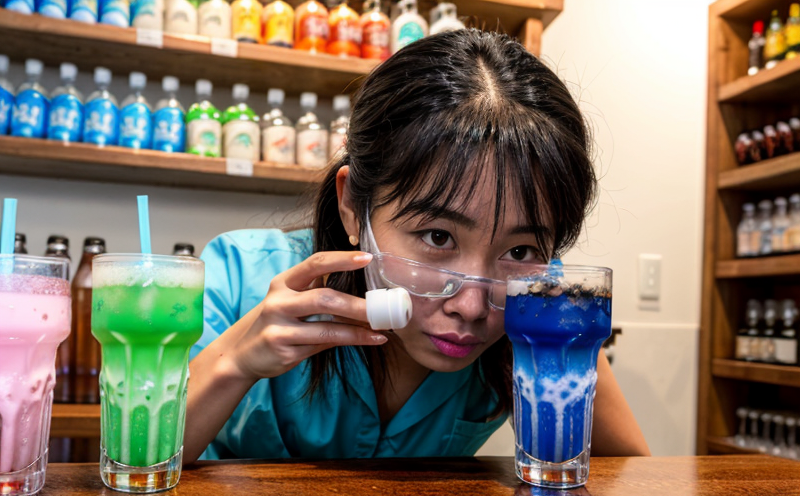ISO 21528-1 Enterobacteriaceae Detection in Beverages
The ISO 21528-1 standard is a critical tool used by laboratories to ensure the microbiological quality of beverages. This standard provides specific procedures for detecting and quantifying Enterobacteriaceae, which are bacteria that can indicate fecal contamination in food products, including beverages.
Beverages form an important part of our daily diet, and their safety is paramount to public health. Enterobacteriaceae, especially those like Escherichia coli, are key indicators for the presence of pathogenic microorganisms that can cause foodborne illnesses. By detecting these bacteria early in production processes or during quality control checks, manufacturers can take swift action to prevent contamination and protect public health.
The testing procedure outlined in ISO 21528-1 is designed to be both sensitive and specific, ensuring accurate detection of Enterobacteriaceae. It involves the following key steps:
- Sample collection: Beverages are collected from various points in production or directly from packaging.
- Preliminary plating: Samples are inoculated onto selective media to enhance the growth of Enterobacteriaceae.
- Incubation and identification: Plates are incubated under controlled conditions, and colonies are identified based on morphological characteristics and biochemical tests.
- Confirmation: Positive samples undergo further confirmation using methods like PCR or mass spectrometry to ensure accurate detection.
The standard also provides detailed guidelines for reporting results, ensuring that the data is clear, consistent, and comparable across different laboratories. This is essential for maintaining high standards of quality control in the beverage industry.
Compliance with ISO 21528-1 not only ensures product safety but also enhances brand reputation by demonstrating a commitment to hygiene and quality. It is particularly crucial for manufacturers dealing with international markets, where adherence to global standards can significantly impact market access and consumer confidence.
Why It Matters
The importance of detecting Enterobacteriaceae in beverages cannot be overstated. These bacteria are not only an indicator of contamination but also pose significant health risks if they enter the human food chain. The presence of these microorganisms can lead to severe illness, including gastroenteritis and other gastrointestinal infections.
Beverage manufacturers must adhere to strict hygiene protocols during production to prevent contamination. ISO 21528-1 provides a robust framework that helps them achieve this goal. By implementing this standard, companies can:
- Ensure product safety by identifying potential contaminants early in the process.
- Protect their reputation and brand integrity through consistent quality assurance practices.
- Increase market access to international markets where stringent hygiene standards are required.
The test is especially vital for manufacturers of carbonated drinks, milk products, and other beverages that can carry higher risks due to varying processing methods. By adhering to this standard, they not only meet regulatory requirements but also contribute positively to public health.
Why Choose This Test
Selecting the right microbiological testing method is crucial for beverage manufacturers to ensure product safety and compliance with international standards. ISO 21528-1 offers several advantages that make it an excellent choice:
- Comprehensive Coverage: The standard provides detailed procedures for detecting Enterobacteriaceae, covering both qualitative and quantitative aspects of the test.
- Scientific Rigor: Based on extensive scientific research, ISO 21528-1 ensures that the testing method is both reliable and reproducible across different laboratories.
- Regulatory Compliance: Compliance with this standard helps manufacturers meet regulatory requirements in various countries, including those of the European Union, United States, and other international bodies.
- Enhanced Brand Reputation: By demonstrating a commitment to hygiene and quality through adherence to global standards, manufacturers can build trust with consumers.
The test is particularly useful for companies looking to expand their product range or enter new markets. It provides them with the confidence that they are adhering to the highest international standards of hygiene and quality control.
Moreover, ISO 21528-1 supports continuous improvement in manufacturing processes by providing a clear benchmark against which performance can be measured. This ensures that manufacturers remain at the forefront of industry best practices, enhancing their competitive edge.





